Your Cart is Empty

July 13, 2021 6 min read
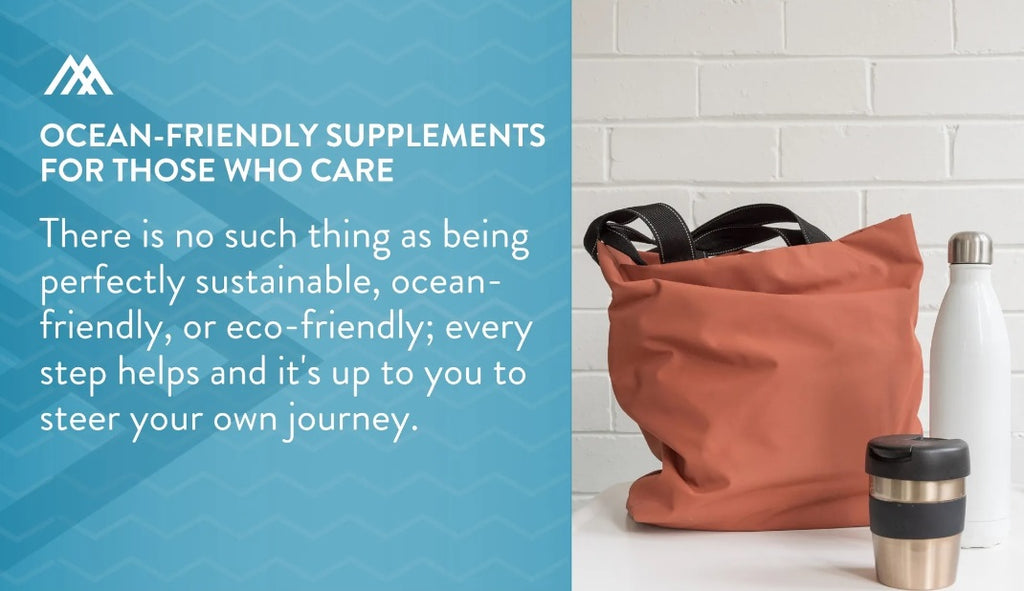
There is no hard or fast rule for what makes a supplement or any other product "ocean-friendly". Like most things, it is dependent on what eco-friendly or sustainable means to you. For instance, those who are just starting their sustainability journeys might consider using reusable bags as a great eco-friendly option while still contributing to plastic waste via coffee cups, water bottles, and cutlery. On the other end of the spectrum, the most eco-conscious consumers might consider the taking of long showers or using a drying machine an ecological failure. Essentially, any improvement is an improvement!There is no such thing as being perfectly sustainable, ocean-friendly, or eco-friendly; every step helps and it's up to you to steer your own journey.
Large corporations and brands have a much bigger impact on our oceans than any one consumer can. That's why it's important to keep them accountable and "vote with your dollars" by purchasing products that align with your personal values.
Traceability, transparency, and eco-friendly practices are now becoming requirements for all companies, whether they're selling t-shirts, chocolate bars, or supplements. Here are some fast facts on why choosing eco-friendly supplements matter:
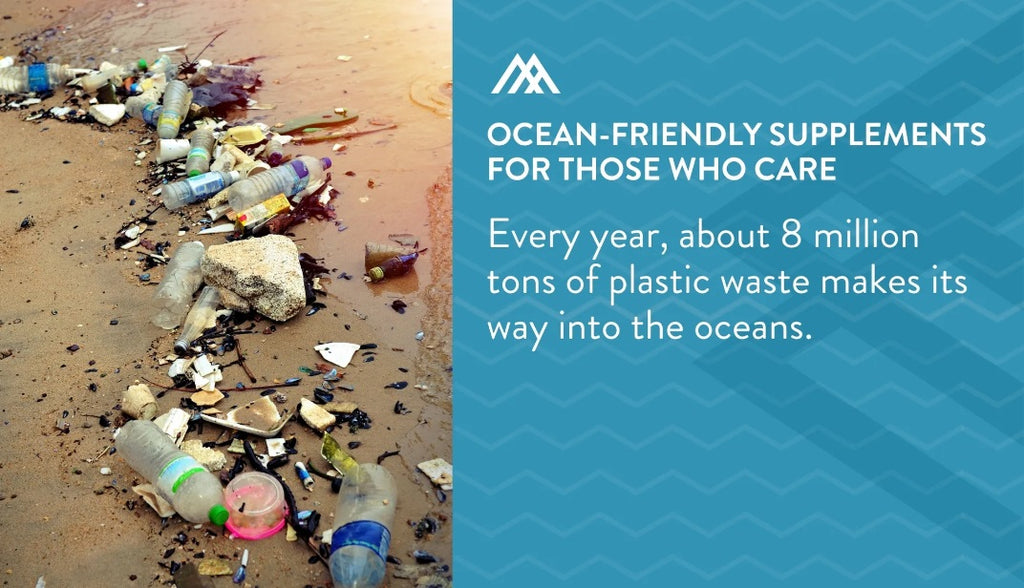
Using eco-friendly packaging is just the tip of the iceberg. Starting with how the plant is grown and harvested, to how it's packaged and shipped to your door, there are opportunities to make a supplement more eco-friendly at every step.
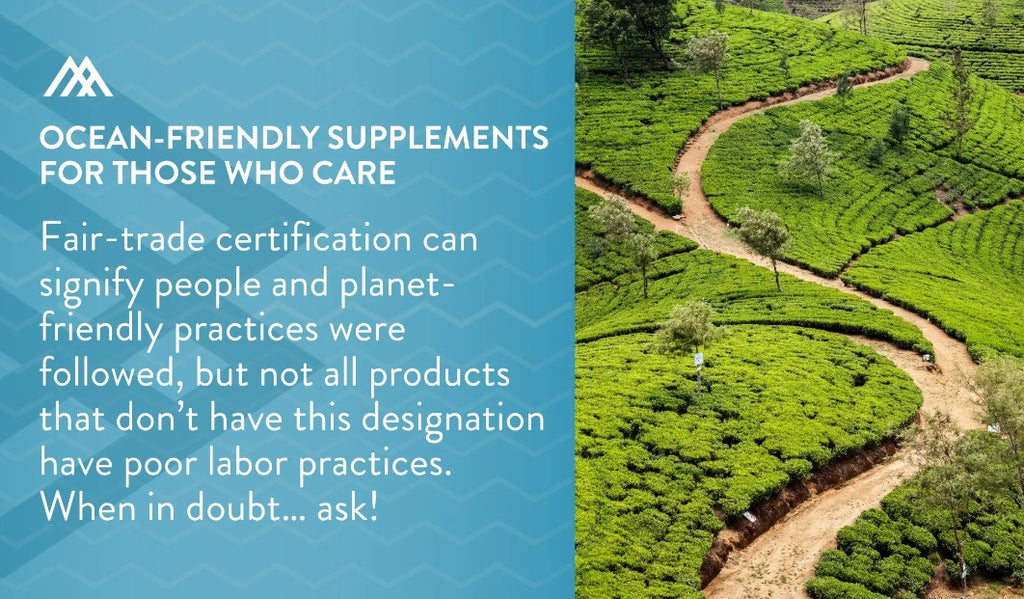
Take our quiz and find which supplements your body is craving.

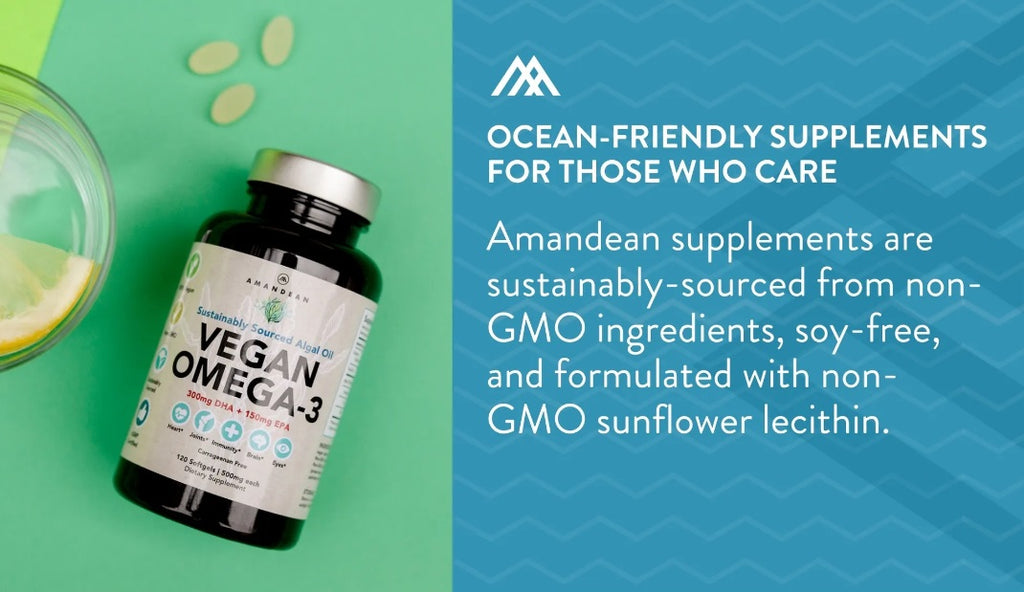
At Amandean, we are always looking for ways to make supplements better for our bodies and planet. In addition to the two supplements listed below, we have created our Liposomal Glutathione and Vitamin C supplements from conscious sources rather than traditional sources. Our glutathione is made from vegan Setria(TM) in Japan, and our vitamin C is made from Quali-C(TM) in Scotland. Neither contain any animal based or sea-based ingredients, nor harm or pollute the sea in any way. And as always, our supplements are sustainably-sourced from non-GMO ingredients, soy-free, and formulated with non-GMO sunflower lecithin.
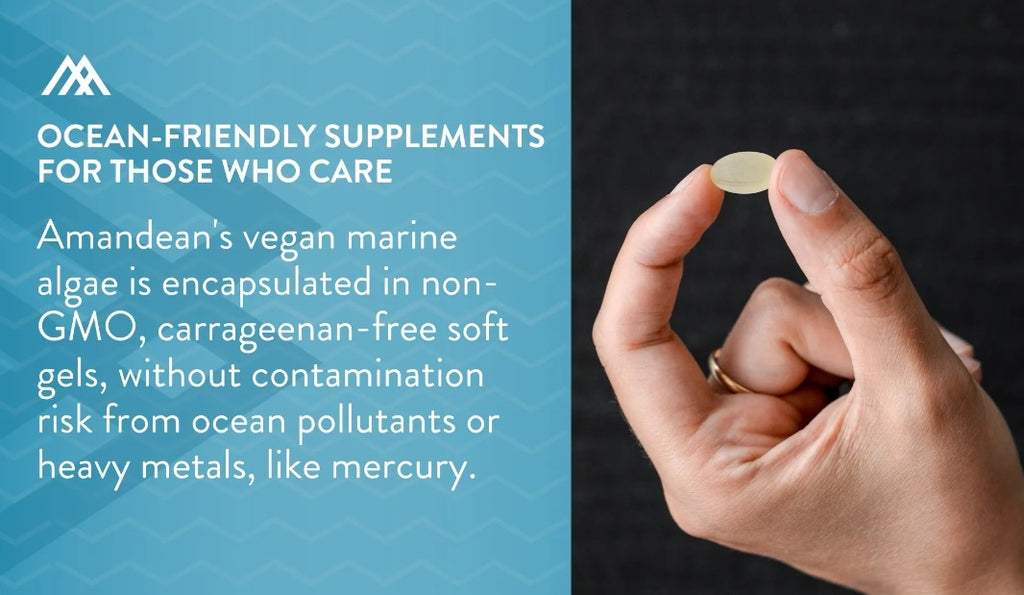
Finding the right supplement for your unique health needs can be a battle in and of itself. Once you find which ingredients or nutrients you need to add to your diet, the next battle is to find a supplement that aligns with your personal dietary restrictions and values. Collagen and omega-3s are some of the most beneficial and well-rounded supplements that can benefit nearly everyone’s health and wellness, but they’re not all created equally. With Amandean, you can guarantee that you’re getting a supplement that does well by your body, and the planet.
There is no such thing as being perfectly sustainable, ocean-friendly, or eco-friendly; every step helps and it's up to you to steer your own journey.
Starting with how the plant is grown and harvested, to how it's packaged and shipped to your door, there are opportunities to make a supplement more eco-friendly at every step.
At Amandean, we are always looking for ways to make supplements better for our bodies and planet.
Amandean's vegan marine algae is grown safely in the USA and is a great source of both DHA & EPA to boost your immune system and counter inflammation.

April 24, 2024 8 min read

April 17, 2024 4 min read

April 01, 2024 7 min read